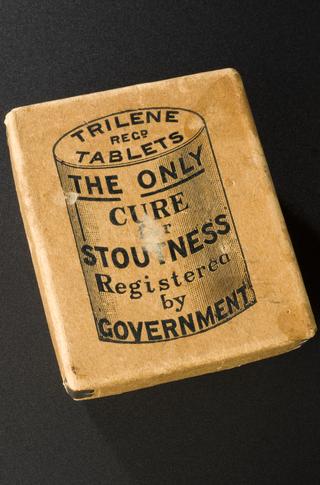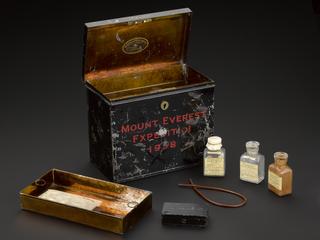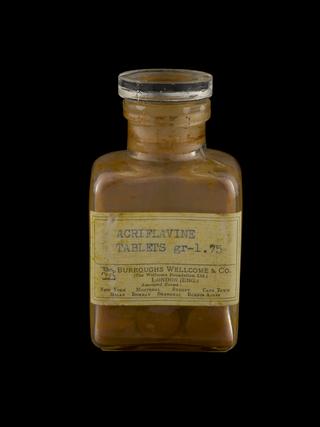
Homeopathic medicine 'Nat Phos 6x', Calcutta, India, 1975-1980

Nat Phos 6x, plastic phial of Hahnemann's biochemic medicine, one of a selection of drugs and related material from India, 1975-1980.
Nat Phos 6x is a homeopathic medicine taken continuously for three months in an attempt to reduce urine output and the amount of sugar in the urine, which is an indication of diabetes. Four tablets are taken four times a day. The medicine was made by Hahnemann Limited, a company probably named after the founder of homeopathy, Samuel Hahnemann (1755-1833).
Homeopathic medicines are widely used in India and have been popular since the 1840s. Homeopathy is based on the idea that like cures like; for instance, something that cures vomiting will, if given in a large enough dose, cause vomiting. The doses used in homeopathy are very small. Homeopathy is recognised and supported by the government of India where this treatment was made.
Details
- Category:
- Materia Medica & Pharmacology
- Object Number:
- 1981-1397/65
- Materials:
- cardboard, glass, plastic (unidentified), metal (unknown) and paper (fibre product)
- Measurements:
-
overall: 70 mm 28 mm, .02kg
- type:
- homeopathic medicine
- credit:
- Purchased from U Ram Nath

